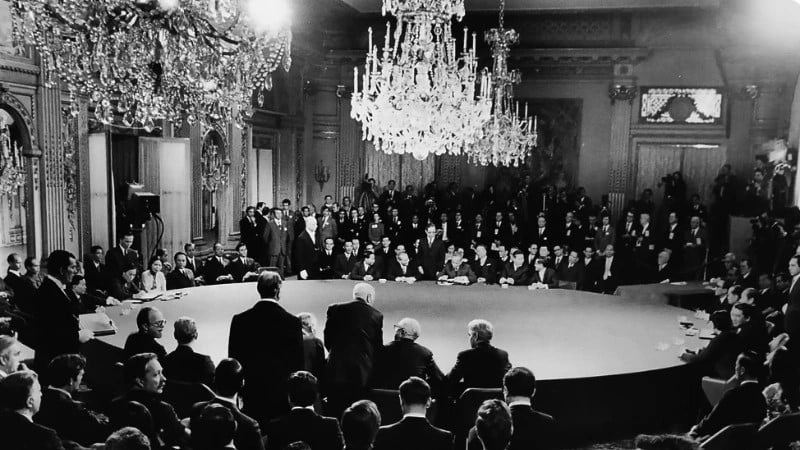 |
| The victory in the Paris Conference contributed significantly to the historic Spring Victory of 1975. (Photo: Archive) |
Vietnamese diplomacy is honored and proud to have contributed to that great and enormous victory of the nation. The history of the past 80 years has shown that, in the great victories of the country, victories on the battlefield are always associated with victories at the negotiating table.
If the historic Dien Bien Phu Victory created momentum for the results at the Geneva Conference, the victory at the Paris Conference contributed significantly to the historic Spring Victory of 1975. The victories on the diplomatic front during this period left invaluable lessons that remain valuable to this day.
Diplomacy - An Important Strategic Front
Entering the resistance war against the US, carrying out President Ho Chi Minh's sacred command that "No matter how difficult or arduous, our people will definitely win... Our Fatherland will definitely be unified. The people of the North and South will definitely be reunited under one roof", the national interest above all and first of all at this time is how to liberate the South and unify the country.
In the context of having to “fight the strong with the weak”, our Party has determined that combining national strength with the strength of the times is a decisive factor. That is the strength of great national unity, from north to south; the strength of solidarity with Laos and Cambodia; the strength of assistance from socialist countries, especially the Soviet Union (formerly), China and the strength of support from progressive humanity around the world.
With that spirit, the 13th Central Conference in 1967 determined that "diplomatic struggle does not simply reflect the struggle on the battlefield, but in the current international situation with the nature of the war between us and the enemy, diplomatic struggle plays an important, active and proactive role". Then, in 1969, the Politburo issued a Resolution determining that diplomacy became a strategic front of great significance.
Firstly, diplomacy has been combined with military and politics, creating a “fighting and negotiating” situation, mobilizing the combined strength of the nation. In which, military and political struggles are the basis for negotiations on the diplomatic front; conversely, diplomatic struggles contribute to the resonance of the victories of political and military struggles.
With flexible and adaptable strategies, when the time was ripe, we forced the US to sit down for negotiations in 1969, opening up a new situation to gradually gain victory. The fierce intellectual battles at the negotiating table with the world's leading power have tempered the mettle and intelligence of Vietnam's revolutionary diplomacy. Outstanding diplomats such as Le Duc Tho, Xuan Thuy, Nguyen Thi Binh... have become symbols of the steadfast will, mettle, sharpness but flexibility of Vietnam's diplomacy.
The art of “fighting and negotiating” in diplomacy reached its peak with the signing of the Paris Agreement on ending the war and restoring peace in Vietnam. Along with the victories at Khe Sanh and Mau Than, the victories at the negotiating table forced the US to de-escalate and sign the Agreement in January 1973, completing the mission of “fighting to make the US leave” to move towards “fighting to make the puppet government fall”.
According to the Agreement, the US was forced to withdraw all troops and weapons from South Vietnam, creating favorable conditions for the armed forces, political forces and revolutionary mass movements to consolidate. From there, the battlefield changed in a direction favorable to the revolution, creating an opportunity as the Politburo stated in 1974: Apart from this opportunity, there is no other opportunity to completely liberate the South and unify the country.
Second, diplomacy has taken advantage of the strength of three revolutionary currents, mobilizing the support of socialist countries and a broad international front to support the just struggle of the Vietnamese people.
The saying “For Vietnam, Cuba is willing to sacrifice its own blood” by President Fidel Castro has become a typical slogan for the material and spiritual support of brother socialist countries. Along with the will and determination of our army and people, the support and assistance in all aspects of socialist countries have contributed to the glorious victories on the battlefield.
With their prestige and diplomatic activities, President Ho Chi Minh and his predecessors not only mobilized support but also made great contributions to strengthening solidarity and cooperation among socialist countries. The Vietnamese revolution has become a banner that brings together the solidarity of socialist countries to overcome times of rifts and disagreements. At the same time, with the spirit of "helping friends is helping ourselves", we have built solidarity and fighting alliances with Laos and Cambodia, contributing to the victory of each country's revolution.
In addition, Vietnam's "heart-to-heart" diplomacy has won people's hearts with justice, reason and morality, creating a broad people's front supporting Vietnam. The two words "Vietnam" have become a symbol of the national liberation movement, including the American people and many famous politicians, scholars and personalities in the world.
Millions of people across the world, even in the United States, took to the streets to protest the war; the movement of volunteers to fight in Vietnam, donate blood, set up fundraising funds... spread throughout the world. Images of leaders like Swedish Prime Minister Olof Palme participating in protests or peace activists like Norman Morrison setting themselves on fire to protest the war became symbols of the struggle for peace and justice.
Third, with the spirit of “peace”, diplomacy has expanded the country’s foreign relations and laid the foundation for reconciliation with countries that had been at war. In the midst of the fiery days of war, we always expressed our desire to build friendly and cooperative relations with countries that were at war in Vietnam, including the US, and were ready to “roll out the red carpet” for the US to withdraw.
With goodwill gestures such as humane treatment of prisoners of war, prisoner exchange, facilitating the evacuation of American citizens in the final days of the war, etc., the spirit of peaceful diplomacy demonstrated goodwill for peace and humanity and contributed to restoring normal relations with other countries later.
Along with our just struggle, diplomacy has promoted President Ho Chi Minh's motto of making our country have fewer enemies and more allies, contributing to expanding relations not only with socialist countries and newly independent former colonies.
Immediately after the victory of the Paris Agreement, we established diplomatic relations with many developed Western capitalist countries such as Japan, England, France, Italy, Canada, Belgium, the Netherlands, etc., expanding recognition of the Democratic Republic of Vietnam.
Fourth, as President Ho Chi Minh said, “To be successful, one must know everything in advance.” The research and strategic forecasting of diplomacy has effectively supported the political and military fronts. Diplomacy has correctly assessed and recognized the world situation, the interests and policies of friends and opponents, thereby helping the Party Central Committee make timely decisions in each stage. During the stage of fighting and negotiating, along with the military offensive, diplomacy has stepped up political attacks, and public opinion has forced the US to stop bombing the North, accept a strategic shift and enter into negotiations with Vietnam.
The history of wars has shown that each strategic forecast is no less powerful than the army, and diplomacy also contributes to victories on the military front. In each major operation such as the Mau Than Spring General Offensive and Uprising, the historic Ho Chi Minh Campaign, etc., diplomacy, together with other forces, correctly assessed the opponent's situation in order to make accurate forecasts about military moves.
Especially during the General Offensive and Uprising in the Spring of 1975, diplomacy correctly assessed the difficulties of the Saigon government and the direction of US policy, accurately predicting that the US could not intervene militarily again.
Lessons in the Age of Rising
Vietnam's young diplomacy was born and matured during the 9-year resistance war against France and was tempered during the 20-year resistance war against the US to save the country. The glorious achievements at the negotiating table in Geneva in 1954 and in Paris in 1973 were the crystallization of wisdom during the most difficult periods of Vietnam's revolutionary history. Tested and tempered in practice at times when national interests were seriously threatened, these lessons still hold true in the current stage of national development.
Epochal changes require revolutionary decisions. As General Secretary To Lam said, in the new era, the era of national advancement, Vietnamese diplomacy must reach new heights to fulfill new glorious responsibilities, worthy of being the vanguard, the combined arms of the Vietnamese revolution. Imbued with that ideology, Vietnamese diplomacy will promote timeless lessons in the struggle to liberate the South and unify the country to enter the era of advancement.
The first is the lesson of ensuring the highest national interests. Throughout the resistance war, diplomacy was imbued with President Ho Chi Minh's words at the 3rd Diplomatic Conference in 1964 that diplomacy must always serve the interests of the nation. Today, national interests are still the guiding principle for action, the most important basis for determining cooperation in the struggle in diplomacy.
At the same time, in today's interdependent world, ensuring the highest national interests must be based on equality, cooperation, mutual benefit, and joint efforts for peace, national independence, democracy and social progress, based on the fundamental principles of the United Nations Charter and international law.
The second is the lesson of combining internal and external forces, combining national strength with the strength of the times. In the past, “psychological” diplomacy mobilized enormous support, both material and spiritual, from progressive humanity.
In the current revolutionary period, diplomacy "serving development" must mobilize favorable external conditions and resources such as trends of peace, cooperation and development, consensus in creating and consolidating a multipolar, multi-center, fair, equal world based on international law; new development trends that are shaping the world such as green economy, digital economy, circular economy and especially the achievements of the scientific and technological revolution that are opening up new breakthrough opportunities such as artificial intelligence, semiconductors, etc.
In particular, diplomacy has the task of pioneering cooperation with leading countries and corporations; opening up capital and knowledge sources from innovation centers; enhancing Vietnam's position in the global production and supply chain...
Third is the placement of foreign affairs in a “crucial, regular, pioneering” role and position in protecting national interests. During the war, our Party had a strategic decision to identify foreign affairs as a “front” along with politics and the military.
In the current period, in the context of a rapidly changing world with increasing competition and conflicts, our Party has determined that, together with national defense and security, foreign affairs must play a "crucial, regular" role in protecting the country early and from afar, firmly protecting independence, sovereignty and territory, creating a peaceful, stable and favorable international situation, and mobilizing resources and conditions to serve national development.
In particular, diplomacy must elevate and deepen the framework of relations with partners to open up new security and development spaces for the country.
Fourth is the lesson of integration with the world, placing the country in the mainstream of the times. In the past, integration was to link the nation with the three revolutionary streams, with the common cause of socialist countries; today, it is deep, comprehensive, and complete international integration, making international integration a driving force for development.
Accordingly, successfully implementing the recent Resolution No. 59/NQ-TW on international integration in the new situation, together with Resolution 18 on organization and arrangement of the apparatus and Resolution No. 57 on science and technology development and digital transformation, is the "trio of strategies" of the Party in this new revolutionary period. In particular, making integration a cause of the entire people, becoming a "self-conscious culture" of the people, businesses and localities. These are also the main subjects, forces and beneficiaries of the benefits of international integration.
Inheriting the tradition of previous generations, diplomacy today has created a favorable and open foreign situation for protecting and building the Fatherland. We have established diplomatic relations with 194 countries, created a framework of Strategic Partnership and Comprehensive Partnership with 34 countries, and are an active member of more than 70 international organizations, moving from simple economic integration to deep and comprehensive international integration, promoting the core and leading role in important issues and mechanisms of strategic significance, in line with our interests, as well as making practical and responsible contributions to solving common problems of the world.
In every great victory of the nation, there is the contribution of diplomacy. In the era of national liberation, diplomacy became a front, contributing to the great victory of Spring 1975. In the era of renovation, diplomacy pioneered in breaking the embargo, bringing the country into international integration, opening a new stage of development for the country.
With a timeless mindset, the lessons learned in the struggle to liberate the South and unify the country remain valuable and continue to guide diplomacy into a new era, an era of national prosperity and development. Diplomacy will continue to strive to serve the country and the people, ensuring the highest national and ethnic interests in the new context.
According to Nhan Dan Newspaper
https://nhandan.vn/ngoai-giao-viet-nam-dong-cong-vao-giai-phong-mien-nam-thong-nhat-dat-nuoc-nhung-bai-hoc-lich-su-con-nguyen-gia-tri-post874509.html
Source: https://thoidai.com.vn/ngoai-giao-viet-nam-dong-gop-vao-giai-phong-mien-nam-thong-nhat-dat-nuoc-nhung-bai-hoc-lich-su-con-nguyen-gia-tri-212916.html






![[Photo] Magical moment of double five-colored clouds on Ba Den mountain on the day of the Buddha's relic procession](https://vphoto.vietnam.vn/thumb/1200x675/vietnam/resource/IMAGE/2025/5/9/7a710556965c413397f9e38ac9708d2f)
![[Photo] Prime Minister Pham Minh Chinh chairs a special Government meeting on the arrangement of administrative units at all levels.](https://vphoto.vietnam.vn/thumb/1200x675/vietnam/resource/IMAGE/2025/5/9/6a22e6a997424870abfb39817bb9bb6c)
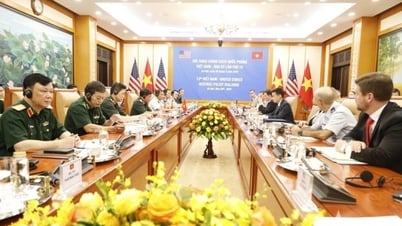
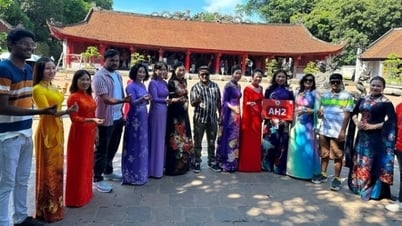
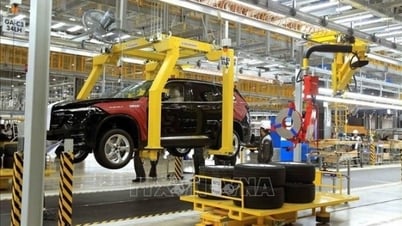
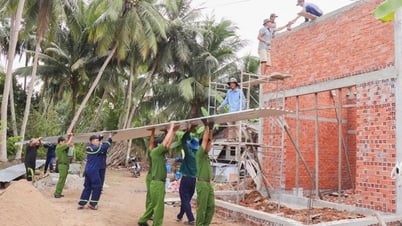
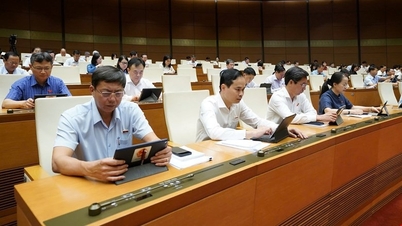
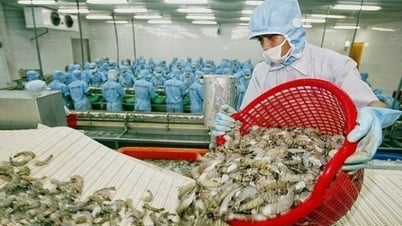




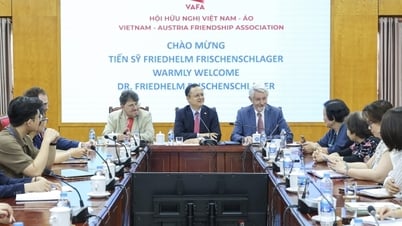
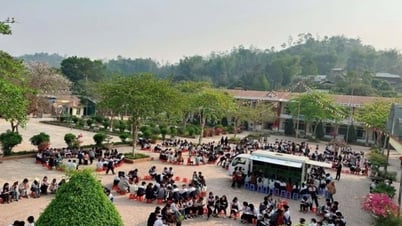
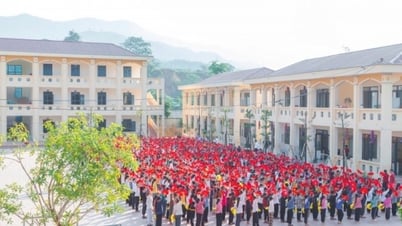
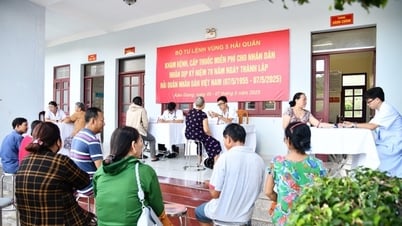
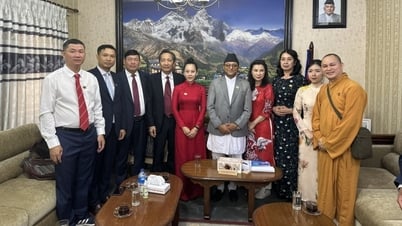
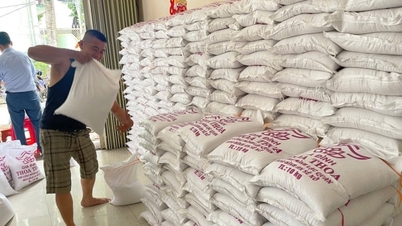




































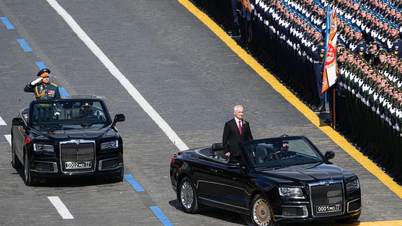
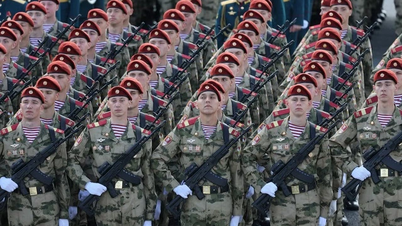
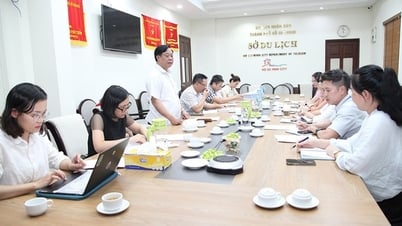

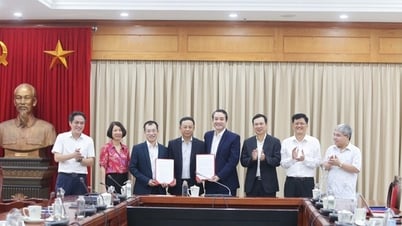

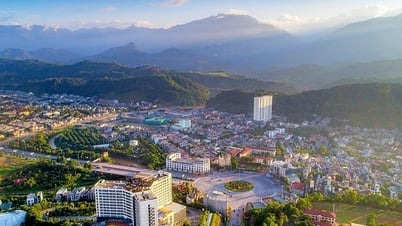
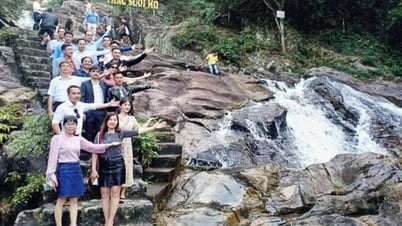

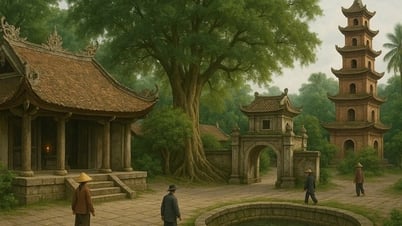
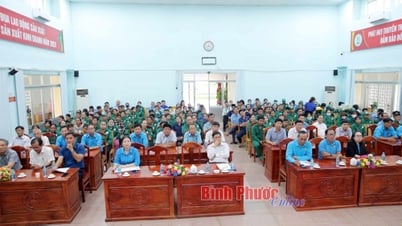

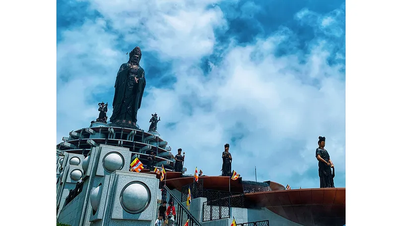

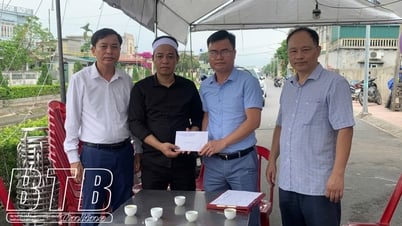

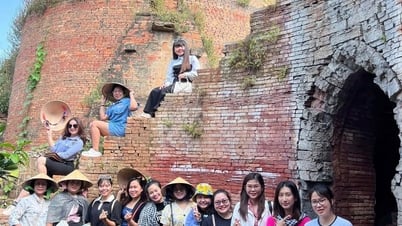



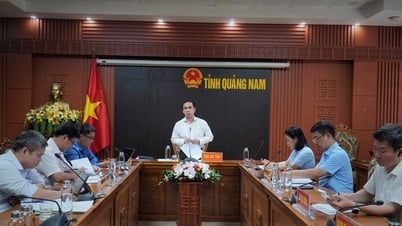












Comment (0)